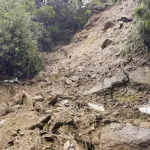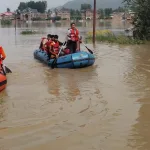Jammu, July 03: “The writ petition pertaining to the conduct of early assembly elections in J&K has been listed for hearing by the Supreme Court on Thursday, the 6th of July this month,” said Harsh Dev Singh, former minister and advocate on Monday. Singh said he has filed the writ petition seeking “indulgence of the court for restoration of the democratic process in the erstwhile state of J&K”.
In a statement issued here, Harsh Dev said, “As per the ‘cause list’ issued by the Supreme Court registry, the matter would be heard by a Supreme Court bench headed by Chief Justice of India, Court No.1 of the Apex Court of the country.”
The National Panthers Party president said he was compelled to move the top court of the country in view of the “uneasy disquieting silence” maintained by the Government of India (GoI) and the Election Commission of India (ECI) over the issue.
Emphasising the need for early elections to J&K Legislative Assembly in J&K, Singh said any delay in this regard would not only amount to subversion of democracy but also violate the orders of the Supreme Court. “The people could not be deprived of their democratic rights in the state only for the political inexpediencies of the ruling party at the Centre by taking to frivolous excuses,” he said.
He said a full-time elected government was a must to deal with the armed insurgency in the erstwhile state besides coping with the multiple issues confronting the UT. “The militancy which had erupted in the early ’90s in J&K had gradually subsided after the formation of an elected government in the state. It had almost died down during popular governments but unfortunately got revived during the Centre’s proxy rule. Any delay therefore in handing over power to the sons of soil through free and fair elections could prove counterproductive and further complicate the already volatile situation in the UT,” he claimed.
The former minister said that bureaucratic rule was no answer to the “prevalent crisis”. “The LG administration had lost connect with the masses. The unemployed, semi-employed and contractuals were on the roads with none to even take note of their sufferings and grievances. The people inhabiting the rural areas were suffering badly for basic amenities with no access whatsoever to the corridors of power. With hardly any forum to ventilate their grievances, the people were suffering badly in the absence of a popular government thereby resulting in growing alienation amongst the masses,” he said.





